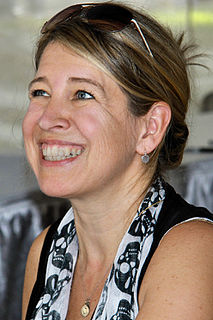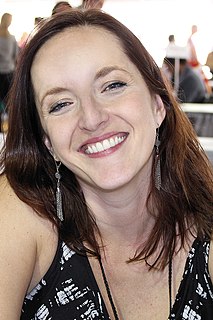A Quote by Jon Stewart
How far back to the elementary school core curriculum do we have to go to get someone on the House Committee on Science, Space and Technology caught up?
Related Quotes
Education is a technology that tries to make up for what the human mind is
innately bad at. Children don't have to go to school to learn how to walk,
talk, recognize objects, or remember the personalities of their friends,
even though these tasks are much harder than reading, adding, or
remembering dates in history. They do have to go to school to learn written
language, arithmetic, and science, because those bodies of knowledge and
skill were invented too recently for any species-wide knack for them to
have evolved.
I think evolution should be taught as an accepted principle. I say that also as the daughter of a school teacher, a science teacher, who has instilled in me a respect for science. I think it should be taught in our schools. I won't ever deny that I see the hand of God in this beautiful creation that is earth. But - that is not a part of state policy or a local curriculum in a school district. Science should be taught in science class.



































